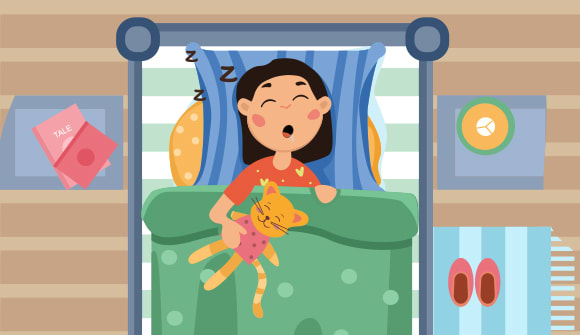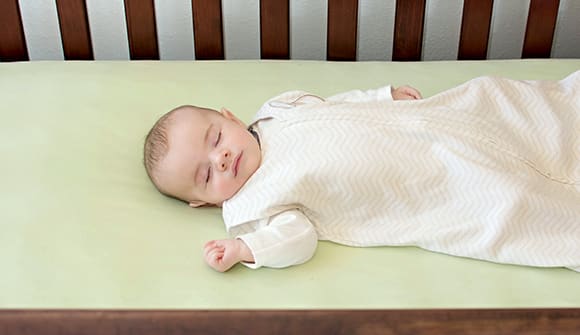Smart sleep
Your child’s struggle to snooze may affect more than their dreams.
Article Date:

There’s nothing sweeter than a sleeping child. But did you know those hours of shut-eye (or lack thereof) can impact much more than your little one’s mood?
Sleep apnea, a condition where a person has trouble breathing while sleeping, is noted for its trademark nighttime noise: a loud snore. Around 1% to 4% of children suffer from the condition, which can cause more than an interruption to a good night’s sleep.
Obstructive sleep apnea (OSA) occurs when an airway becomes narrowed and physically blocked. If the back of the nose or throat becomes completely obstructed, individuals with OSA can even stop breathing.
According to Gary Josephson, MD, a community pediatric otolaryngologist, researchers have discovered these brief breathing pauses could have major effects on many aspects of a child’s life, including poor performance at school.
Rest is best
A study from Johns Hopkins University’s Department of Pediatrics evaluated two groups of children: one group had OSA and the other did not. Using MRI technology – a special type of imaging test that looks inside the brain – as well as sleep studies that measured breathing patterns, researchers were able to come to a striking conclusion.
The children who had severe OSA had lower IQs and cognitive function than those who did not. The breathing interruptions caused by the condition can reduce the amount of oxygen the body takes in and increase the amount of carbon dioxide retained, potentially damaging the brain and altering a child’s intellectual potential.
“If left untreated, pediatric OSA can cause memory issues and even decrease performance at school,” Dr. Josephson said. “A good night’s sleep is essential for healthy childhood development.”
Snoring is just one symptom of OSA. The condition can be completely silent and jolt children awake when they stop breathing, with the only sign being hyperactivity while awake due to sleep deprivation.
“Kids often don’t show tiredness in the same way adults do,” Dr. Josephson said. “OSA can be misdiagnosed as ADHD if there are no visible indications, such as making unusual noises during the night.”
Other signs of OSA include:
- Bedwetting
- Excessive sleepiness during the day
- Mouth breathing
- Waking up with a gasping or choking sound
Tiny tissues, big issues
According to Dr. Josephson, in most cases, a tiny patch of tissue in the nose or throat is to blame.
Tonsils and adenoids are groups of tissue that sit at the back of the throat and nose, respectively. They help defend against viruses and bacteria that try to enter the body, but may cause health issues if they become infected and swollen.
Swelling in these tissues is the most common cause of OSA in children. If an ENT decides surgery is needed, both the tonsils and adenoids are usually removed at the same time.
“Around 85% of all tonsillectomies [a procedure during which the tonsils are surgically removed] are performed to correct sleep issues,” Dr. Josephson said. “Removing the tonsils and adenoids resolves OSA completely in most cases and can greatly improve a child’s quality of sleep and quality of life.”
The following conditions may also be risk factors for developing pediatric OSA:
- Abnormalities in the skull or face, such as a deviated septum
- Allergies
- Cerebral palsy
- Down syndrome
- Family history of obstructive sleep apnea
- Low birth weight
- Neuromuscular disease, such as muscular dystrophy
- Obesity
- Sickle cell disease
If you have a concern about your child’s school performance and suspect OSA as a factor, you can seek a referral to a pediatric ENT for a full airway evaluation. This assessment will determine whether your child has OSA, the cause of the condition, and potential treatment options.
Wolfson Children’s Hospital provides state-of-the-art pediatric otolaryngology (ear, nose and throat) services in partnership with Nemours Children’s Health, Jacksonville. To make an appointment, call 904.697.3600.
Source: National Institutes of Health



